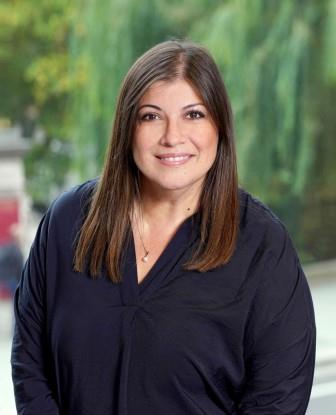

Specialist Medical Negligence Lawyers Secure Settlement For The Family
A young boy left disabled after suffering devastating life-changing injuries when medical staff made mistakes during his birth has received a seven-figure lifetime care and rehabilitation package approved at the High Court today (1st December).
Chase Lorck, now six-years-old, was diagnosed with quadriplegic cerebral palsy as a result of suffering lack of oxygen to his brain during his birth in 2008.
Expert medical evidence commissioned by lawyers Irwin Mitchell representing his family found that midwives, sub-contracted from the Albany Group by King’s College Hospital in South London, had failed to implement a plan agreed between a doctor and Christine Hayes, Chase’s mother, and encouraged a natural birth despite being advised to undertake a caesarean section.
Christine was told by doctors she required a caesarean at 4:45pm but Chase was not delivered until almost five hours later. There were subsequent failures by the staff to adequately monitor the baby’s heart rate and realise that the cardiotocograph (a monitor that records the baby’s heart rate and mother’s contractions) was abnormal throughout and staff failed to speed up Chase’s delivery. A normal vaginal delivery should never have been contemplated.
King’s College Hospital NHS Foundation Trust, which is responsible for the hospital, admitted liability at the end of 2010 allowing expert medical negligence lawyers at Irwin Mitchell to obtain an interim payment of compensation for Chase to implement a care regime and pay for therapies and equipment alongside obtaining expert evidence to consider Chase’s needs. A fair settlement for Chase was agreed at the beginning of November and was approved today by a Judge at the High Court in London.
The £7million settlement (broken down into a £3.1m lump sum plus annual payments of £300,000 each year until Chase reaches the age of 18 and then £320,000 each year for the rest of Chase’s life) which will cover his care, accommodation, specialist equipment and therapies he will need throughout the rest of his life and will be carefully managed by Irwin Mitchell’s specialist Court of Protection team to ensure it lasts for his lifetime.
Chase will need to use a wheelchair for life and the extent and complexity of the problems he faces means he will always need access to 24-hour nursing care, therapies and specialist aids and equipment. His life expectancy has been seriously reduced and medical evidence obtained in the case concluded that he will only live between a further 13 and 20 years.
Christine’s baby was in a complicated breech presentation and after a long discussion with the obstetrician about the risks; a caesarean section was recommended by medical staff and consented to by Christine.
However, the midwives did not transfer Christine to theatre and on several occasions had further discussions with her suggesting that a normal delivery was still possible and questioned whether the obstetrician had adequately explained to her the risks associated with an operation like a caesarean.
Several hours later by the time Christine was transferred to theatre, it was too late to perform a caesarean and a normal delivery took place which was complicated because of the Chase’s position. He was born in such poor condition that there were no signs of life and in fact no heartbeat was recorded until over 10 minutes after he was delivered – he took his first breath after 20 minutes of resuscitation.
Expert Opinion
It is a huge relief for Chase’s family that the Trust has now agreed an adequate and fair settlement to cover his complex care needs.
“Chase requires 24-hour support for the rest of his life from a team that includes specially trained paediatric nurses as well as health care assistance. Chase is unable to swallow properly himself and is at high risk of choking so he needs suctioning – often several times an hour and while his family have shown tremendous dedication in caring for him, he needs specialist services to ensure he reaches his full potential and to enable his parents to be parents rather than his carers.
“There was a dispute between the parties as to whether paediatric nurses were required. Our evidence was that suctioning beyond the back of the mouth must not, according the Royal College of Nurses Guidelines, be done by non-nursing trained staff. The Defendant disagreed and maintained that the care could be provided by non-nursing trained health care assistants. The settlement achieved enables nursing staff to be directly employed by Chase in addition to the non-nursing trained carers as two carers will be required for much of the day.
“It has been heart-breaking for the family to know that Chase’s injuries would have been avoided with appropriate care; if the midwives had followed the instructions of the doctor and agreed plan
“Even after not implementing the agreed birthing plan, which was unacceptable, there were further errors by the midwives who failed to monitor the baby’s condition adequately and did not appreciate that the baby was distressed and suffering from a lack of oxygen.
“The family hope that maternity staff at the hospital and those subcontracted to the NHS - receive the essential training needed to plug the knowledge gaps highlighted by this case to prevent future needless tragedies.
“The Trust has provided assurances to Chase’s family that lessons have been learnt and acted upon to try and ensure that no other families will suffer in similar circumstances.”
Auriana Griffiths - Partner
If you or a loved one has suffered as a result of a birth injury, we may be able to help you claim compensation. See our Medical Negligence Guide for more information.


